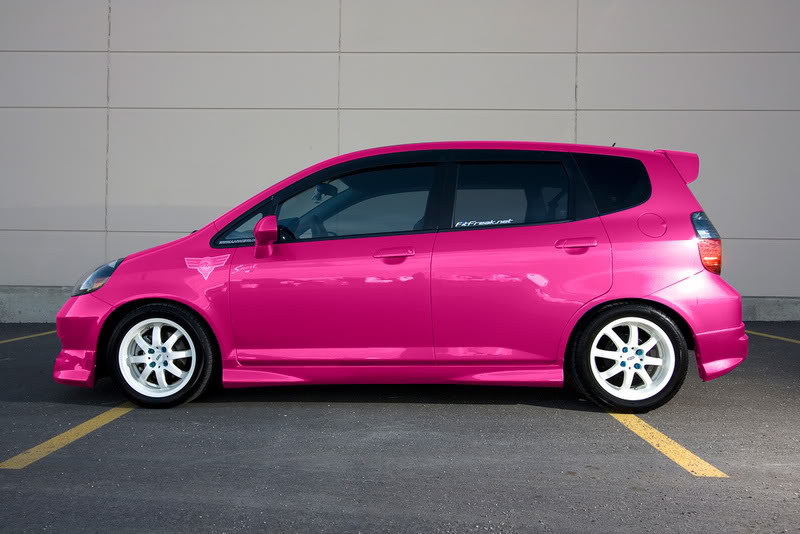Honda’s designers have taken inspiration from women’s favourite eyeshadow shades for the paint colour. If you don’t like pink fear not, the company has plans for an eyeliner brown Fit She’s! The car itself is unique in offering cosmetic benefits for its female drivers.
The Japanese company has claimed that the windscreen actually “helps prevent wrinkles” by blocking the sun’s ultraviolet rays. For the $17,500, you also get some extra skincare thrown into the bargain. The Fit She’s also boasts a “Plasmacluster” climate control system. This futuristic sounding feature is an air-con system that can apparently improve the driver’s skin.
The Fit She’s has been described by Honda as being ‘adult cute’, but what does this mean? The interior has been designed with attention to detail, with a range of pink features. These include seats and a steering wheel with hot pink stitching and pink chrome bezels on the dashboard.
Unfortunately, not all women appreciate Honda thinking pink. In fact, the car has been the subject of considerable ridicule across blogs, news sites and social media.
The Fit She is currently only on sale in Japan, where the market is considerably different. The company has realised that a pink, cutesy car won’t go down to well with American women, but it’s a different story in Japan.
This all comes down to cultural differences between the two countries. Up to 50 percent of Japanese women choose to stay out of the workplace. Once they marry and become mothers, even more decide to become homemakers and full-time, stay at home mums. Regardless of whether a woman is working or not, the Japanese generally have distinct preferences based on gender, so a pink ‘adult cute’ car is perfect for this market.
In the US, being perceived as a ‘woman’s car’ can actually be the kiss of death for some models. Nissan have desperately been trying to shake off the ‘soccer mom’ image of their minivans, but without much success. Volkswagen blames a drop off in sales on the fact that its New Beetle has officially become a ‘chick car’.
It’s not that women want to manufacturers to ignore their specific needs, or that the auto companies don’t want to offer special features for women. They do want to win over the female motorists, but a more subtle approach is called for.


